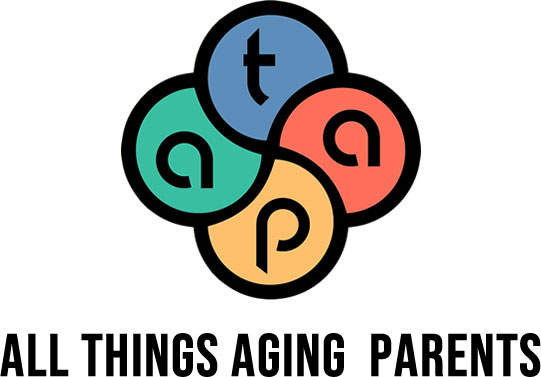Alzheimer’s Disease is the most common cause of dementia, a general term for memory loss and other cognitive abilities serious enough to interfere with daily life. Alzheimer's disease accounts for 60 percent to 80 percent of dementia cases. Alzheimer's worsens over time. Alzheimer's is a progressive disease, where dementia symptoms gradually worsen over a number of years. In its early stages, memory loss is mild, but with late-stage Alzheimer's, individuals lose the ability to carry on a conversation and respond to their environment. Alzheimer's is the sixth leading cause of death in the United States. On average, a person with Alzheimer's lives four to eight years after diagnosis but can live as long as 20 years, depending on other factors.
Alzheimer's has no current cure, but treatments for symptoms are available and research continues. Although current Alzheimer's treatments cannot stop Alzheimer's from progressing, they can temporarily slow the worsening of dementia symptoms and improve quality of life for those with Alzheimer's and their caregivers. Today, there is a worldwide effort under way to find better ways to treat the disease, delay its onset, and prevent it from developing.
Risk Factors: Alzheimer's is not a normal part of aging. The greatest known risk factor is increasing age, and the majority of people with Alzheimer's are 65 and older. But Alzheimer's is not just a disease of old age. Approximately 200,000 Americans under the age of 65 have younger-onset Alzheimer’s disease (also known as early-onset Alzheimer’s). Other risk factors include family history, a variation on the APOE gene, mild cognitive impairment, lower education level, and cardiovascular disease.
Warning Signs: The Alzheimer’s Association lists 10 warning signs that help identify the disease. If your parents exhibit several of these symptoms, you should encourage them to see their doctor for a complete evaluation.
- Memory loss that disrupts daily life
- Challenges in planning or solving problems
- Difficulty completing familiar tasks at home, at work, or at leisure
- Confusion with time or place
- Trouble understanding visual images and spatial relationships
- New problems with words in speaking or writing
- Misplacing things and losing the ability to retrace steps
- Decreased or poor judgment
- Withdrawal from work or social activities
- Changes in mood and personality
Symptoms of Alzheimer’s do not follow a steady progression. Initially, symptoms may come and go, “good days and bad days,” or at different times in the same day. Sometimes they will seem cognitively intact, and other days they will be very symptomatic.


Changes in the brain related to Alzheimer's begin years before any signs of the disease. This time period, which can last for years, is referred to as preclinical Alzheimer's disease. This is the focus of many doctors and researchers as they search for biomarkers (factors that indicate the presence of the disease) that could potentially lead to a cure for Alzheimer’s. (Diagnostic scanning for these biomarkers is limited, though, mostly because insurance companies will not cover it.)
The stages listed below are not concrete determinations of the severity of Alzheimer's since the stages can overlap. This is intended to give a general overview of the progression of the disease.
Mild Alzheimer’s Disease (early dementia): In this stage, your parent is still able to live and function independently, although (s)he will notice some lapses in memory or language. Others will begin to notice these lapses, such as remembering a name, or coming up with the right word, or losing something important. (This is different than simple forgetfulness – if we lose our keys we can usually backtrack in our mind to figure out where we left them. This looks more like forgetting how to backtrack.) There will be noticeable deficits in their job if they are still employed, and they will have more trouble planning and organizing. They may have trouble with complex tasks like balancing a checkbook or cooking a meal. They may be in denial about these lapses and may begin to be moody or withdraw from social settings.
NOTE: It is very important if your parent is in this stage that they actively participate in legal and healthcare decisions before they lose the legal capacity to make them. Please see Advance Care Planning to learn more.
Moderate Alzheimer’s Disease (moderate to moderately severe dementia): Moderate Alzheimer's is typically the longest stage and can last for many years. As the disease progresses, your parent will require a greater level of care.
In the early part of this stage (moderate dementia), you will identify noticeable gaps in your parent’s memory. They may not remember their address or phone number, or the schools they attended, but they still have significant memories about themselves and their family. Memory in this stage has been compared to an open file cabinet in which random files have been pulled out and tossed aside, while other files remain intact. Many times more recent memories are lost before older, more ingrained memories. Your parent may be confused about where they are or what day it is and may need help choosing appropriate clothing, but they can still eat and use the toilet without help.
In the later part of this stage (moderately severe dementia) your parent’s memory will worsen, and they may not remember the names of family members or caregivers. They may not be able to distinguish between people they know and those they don’t know. Deficits in communication and reasoning will increase. Attention to hygiene and personal care may decrease (they may refuse to bathe), and bladder and bowel control may become a more frequent problem. They may lose orientation to day and night and wake in the middle of the night, dressing for work (even if they are long retired), and there is a greater tendency to wander (even outside their home). People in this stage often become suspicious and paranoid, or experience delusions. It is during this stage that your parent will likely need full-time care and supervision to aid them with Activities of Daily Living (ADLs).
Another common symptom in this stage is sundowning, which is a state of confusion that happens in the late afternoon and into the night. Wandering increases, with people attempting to leave home. Their behavior may become more aggressive, demanding, or impulsive, or they may experience hallucinations or delusions. They may have greater confusion or difficulty in understanding others or performing tasks they ould do earlier in the day. Some tips for reducing sundowning are to maintain a predictable routine throughout the day, encourage things that help them feel sleepier at night (less napping, less caffeine after noon, etc), minimize background noise and stimulation in the evening, and playing familiar, gentle music.
Severe Alzheimer’s Disease (late stage): In this final stage your parent will continue to decrease in his/her mental function and communication skills (his/her speech may consist of a very few words). Recognition of family, friends, and caregivers is lost, and all ADLs will require complete assistance. During this stage, your parent will need round-the-clock assistance with personal care and daily activities. (S)He may not be able to communicate pain so the caregiver will have to observe the nonverbal cues, and (s)he becomes more vulnerable to pneumonia or other infections. People in the final stage of dementia stop speaking and eating, lose muscle control and are unable to walk. They lose the ability to hold up their head and swallow, and will eventually slip into a coma and die. (This progression may last from a few months up to three years.)
While there is no cure for Alzheimer’s disease or a way to stop or slow its progression, there are drug and non-drug options that may help treat symptoms. Medical management and other options may improve the quality of life for both your parent and their caregivers. These medications may help your parent manage memory loss, improve their thinking and reasoning capability, and improve day-to-day functioning, but they don’t work for everyone.
The FDA has approved two types of drugs that temporarily improve the symptoms of dementia by increasing the amount of neurotransmitters in the brain:
- Cholinesterase inhibitors - such as Razadyne (galantamine), Excelon (rivastigmine), Aricept (donepezil), and Cognex (tacrine) - help prevent the breakdown of a chemical associated with memory, learning, and other cognitive abilities.
- Glutamate regulators - such as Namenda (memantine) - help control another brain chemical involved in learning and memory. It is often used when the cholinesterase inhibitor drugs have stopped working, so it is more commonly prescribed later in the disease process.
These two drugs affect the brain in different ways, so they may both be prescribed at the same time. Be sure that your parent’s doctor is aware of all medications and supplements your parent is currently taking before starting any new prescription drugs.
Alternative Treatments: There are a number of alternative treatments for Alzheimer’s and dementia, none of which have been effectively proven to improve the symptoms. This is an issue that is constantly debated. There may be complementary or alternative treatments that may help, but if you choose to try these, please be sure that your parent’s doctor is aware of this so that nothing they take will conflict with any prescription medication they are currently taking. If you are interested in learning more about these alternative treatments, visit the Alzheimer’s Association website.
Managing Behavioral Symptoms: Many of the behavioral changes that occur with dementia may be the most challenging and disturbing part of the disease. These changes are a result of the progressive deterioration of the brain cells. In the early stages of Alzheimer’s disease, irritability, anxiety, and depression may be present. In the later stages, anger, agitation, aggression, physical and verbal outbursts, restlessness, pacing, shredding papers or tissues, hallucinations, delusions, and sleep disturbances can occur. Certain medications, medical conditions, and environmental factors can worsen these behaviors. It is important to know that these behaviors stem from the progression of the disease, not because your parent is just acting mean. Try not to take their behavior personally.
Changes in your parent’s environment (like moving to a new residence or nursing home, or admission to a hospital), or a change in caregiver arrangements may result in challenging behavior. Sometimes the trigger is misperceived threats, like being asked to bathe or change clothes. Uncorrected problems with hearing or vision can contribute to confusion and frustration. Identifying the cause of the behavior may go a long way toward figuring out how to address it. For example, if your mother is a very private person, it may be frightening for her to have a caregiver bathe her. Perhaps the situation could be modified by washing only one part of her at a time, thus limiting the amount of time she feels exposed.
Here are some other tips to deal with your parent’s behavior:
- Monitor their personal comfort. Are they hot or cold? Are they hungry or thirsty? Are they in pain? Do they need to use the toilet?
- Avoid confrontation, and do not argue. Reasoning will probably not work, you will just get frustrated.
- Acknowledge their request, don’t just ignore it, or they may become frustrated.
- Respond to the emotion underlying the behavior. Reassure them of your love and support, regardless of the situation.
- Redirect their attention. If their attention is drawn to another subject they may forget what they were upset about.
- Create a calm environment by reducing noise, glare, and background distractions. Provide some stimulation, but don’t overdo it.
- Be sure they get adequate rest.
- Be flexible and try different ways of addressing the situation.
Sometimes it becomes necessary to treat behavioral issues with prescription medications. The most common are antidepressants (like Zoloft, Prozac, Celexa, Desyrel, and Paxil), anxiolytics (like Ativan and Serax) to treat anxiety and sleep disorders, and antipsychotics (like Abilify, Clozaril, Haldol, Zyprexa, Seroquel, Risperdal, and Geodon) to treat hallucinations, delusions, aggression, and agitation. These medications must be used with extreme caution because of the possible side effects.
Communicating with a person who has Alzheimer’s or another dementia can be a challenge. You may feel like the rules of the game have changed and nobody told you what the new rules are – or there are no new rules! How Alzheimer’s affects your parent’s ability to communicate may be unique to them, but there are some commonalities you will likely see as the disease progresses. Repeating words, inventing new words for familiar objects, losing their train of thought, being able to organize words into a sentence, reverting to their native (first) language – all of these are communication problems for a person with Alzheimer’s. They may eventually speak less and less, or not at all.
Difficulty communicating with someone with Alzheimer’s goes both ways – they are struggling to understand you and you are struggling to understand them. An important way for you to “read” them is by watching their nonverbal signals. If they’re shivering, they’re probably cold. If they have a grimace on their face or their hands are clenched and drawn up, they’re probably in pain. If they are jiggling their leg, maybe they need to use the toilet. You can grow to be more proficient at reading their nonverbal cues. The key is to remain calm and try to understand.
When talking with your parent be supportive and patient, offering comfort and reassurance. Don't argue with them, this will just be frustrating for you and them both. Avoid criticizing and correcting – is anything really that important to justify that frustration? You might try offering a guess as to what they mean or encourage them to point to what they're talking about. Limit distractions when you speak with them (background noise, glare, etc), and always try to focus on their feelings (possibly expressed through their tone of voice or facial expressions), not on the “facts.”
One thing you want to avoid and watch out for in others is called elderspeak. What is elderspeak? Think baby talk, only with older adults. It means infantilizing communication by simplistic vocabulary and grammar, elevated pitch and volume, and inappropriate terms of endearment. This is birthed out of people viewing older adults as incompetent, which leads to them not being treated with the dignity and respect that they deserve.
When you speak to someone with dementia, use these tips provided by the Alzheimer’s Association:
- Treat them with dignity and respect (don’t talk down or ignore them)
- Identify yourself (approach from the front so they can see you clearly)
- Maintain eye contact (get on their level if they are seated or in bed)
- Call them by name (it helps get their attention)
- Use short, simple words and sentences (one question at a time, short stories), or use yes/no questions (“Do you want water?” instead of “What do you want to drink?”)
- Speak slowly and clearly (use a lower pitch and relaxed tone)
- Patiently wait for a response (they need extra time to process)
- Repeat information or questions as needed
- Turn questions into answers (“Here is the bathroom” instead of “Do you need to use the bathroom?”)
- Avoid confusing and vague statements (describe actions or objects directly, not with idioms)
- Turn negatives into positives (“Let’s go here” instead of “Don’t go there”)
- Avoid quizzing (“Do you remember…” questions may stress them out)
- Write things down (if they are still reading)
- Convey an easygoing manner (be careful of your nonverbal cues and tone of voice)
In the end, it is fine if you don’t know what to say to your parent; your presence and love are the most important thing to them. Communication, and love, can happen through holding their hand, or smoothing their hair, or feeding them lunch. Keep these reminders in your mind, but mainly be present with your parent.
Resources:
Alzheimer’s Association:
- https://www.alz.org
- https://www.alz.org/alzheimers-dementia/10_signs
- https://www.alz.org/alzheimers-dementia/treatments
- https://www.alz.org/help-support/caregiving/daily-care/communications
Mace, N. L., & Rabins, P. V. (2007). The 36-hour day. New York: Warner.



















